- News
- Reviews
- Bikes
- Accessories
- Accessories - misc
- Computer mounts
- Bags
- Bar ends
- Bike bags & cases
- Bottle cages
- Bottles
- Cameras
- Car racks
- Child seats
- Computers
- Glasses
- GPS units
- Helmets
- Lights - front
- Lights - rear
- Lights - sets
- Locks
- Mirrors
- Mudguards
- Racks
- Pumps & CO2 inflators
- Puncture kits
- Reflectives
- Smart watches
- Stands and racks
- Trailers
- Clothing
- Components
- Bar tape & grips
- Bottom brackets
- Brake & gear cables
- Brake & STI levers
- Brake pads & spares
- Brakes
- Cassettes & freewheels
- Chains
- Chainsets & chainrings
- Derailleurs - front
- Derailleurs - rear
- Forks
- Gear levers & shifters
- Groupsets
- Handlebars & extensions
- Headsets
- Hubs
- Inner tubes
- Pedals
- Quick releases & skewers
- Saddles
- Seatposts
- Stems
- Wheels
- Tyres
- Health, fitness and nutrition
- Tools and workshop
- Miscellaneous
- Tubeless valves
- Buyers Guides
- Features
- Forum
- Recommends
- Podcast
feature
'Disc brakes will take over' - the man from TRP tells us why
Tektro have over 160 CNC machines working 24/7. They produce 20,000 road caliper brakes a month – nearly quarter of a million per year. And that’s nothing compared to the number of hydraulic disc brakes they make: 2.2 million per year. In short, they know a thing or two about brakes, so when the Marketing Director of TRP, Tektro’s high-end division, says that disc brakes are going to take over in every sector of cycling in the next few years, you have to take it seriously.

Of course, it’s in TRP’s interest to big up disc brakes – they make them. But they also make lots of caliper brakes so they’ll sell plenty of units whatever happens in the market.
Plus, you don’t have to take TRP’s word for it. SRAM have already announced new road disc brakes and there are strong rumours that other major manufacturers will be launching their own models very soon. A massive shift is certainly taking place.
The Tektro brand has been around for 27 years and employs 1,400 people. I’ve come to visit their manufacturing facility outside of Taichung in Taiwan, where they’ve been for the past four years. Everything is milled in here, they have a forging plant next door, and the carbon fibre parts are created at their older factory five miles up the road.
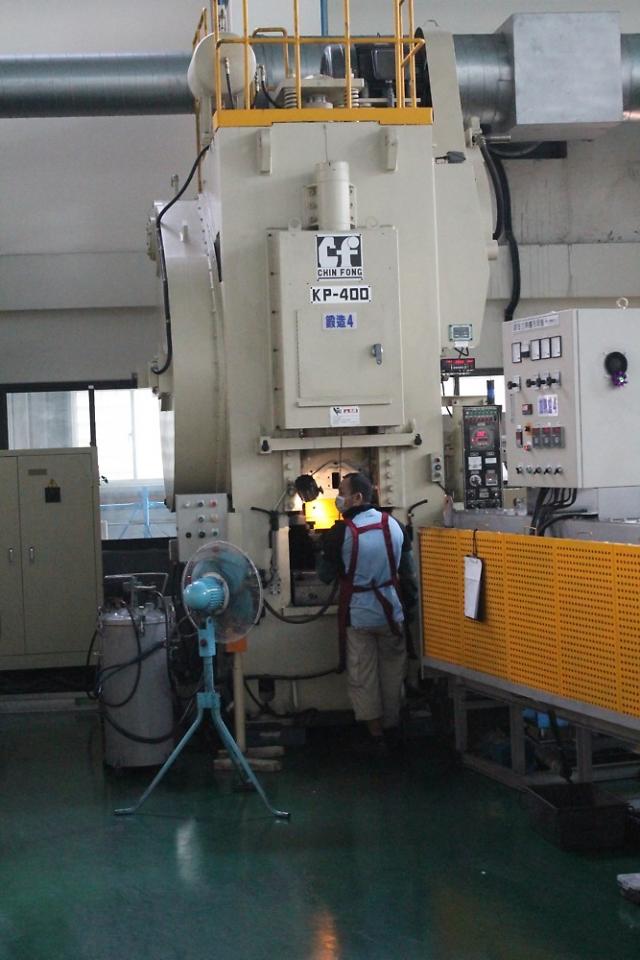
I won’t go too deeply into the manufacturing process but there’s some seriously powerful machinery here it. This is a 400 tonne press, for example. To put that in perspective, a Volkswagen Golf weighs about 1.5 tonnes. You wouldn’t want to get your fingers caught in there. In goes a solid lump of metal, out comes a section of brake.
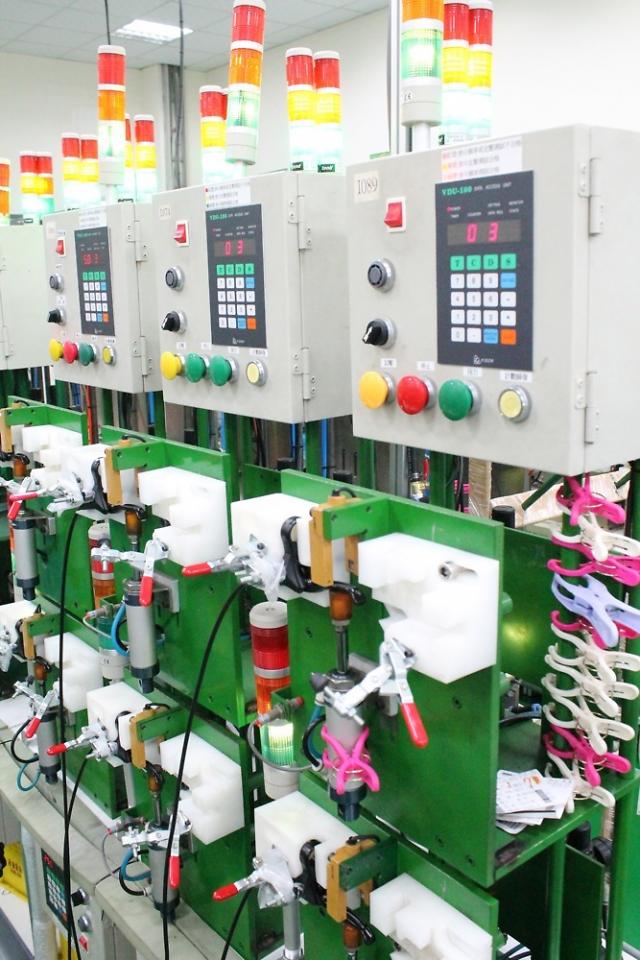
The impression you get wandering around here is that Tektro take their testing and quality control very, very seriously indeed. Brakes are tested individually before they go out. The testing is done on machines, 300 cycles per brake, then they’re pressure tested for 400 seconds. If the brake passes, it’s held for 36 hours and then pressure tested again. This isn’t just done on sample brakes but on every single one before it leaves the factory.

As I said, TRP is the high-end division of Tektro, the initials originally standing for Tektro Racing Products – although the name is now just TRP. Essentially, Tektro products tend to be mass market while TRP are more exclusive, high-performance components. We’ve shown you TRP’s new Spyre and HyRd disc brakes recently, along with the Hylex hydraulic road/CX brake.

We spoke to Lance Larrabee, TRP’s Marketing Director, about both the brand and the future of braking. As you can’t fail to have noticed, big things are happening in road bike braking right now and Lance reckons this is just the start…
road.cc: Tell us about TRP's track record in developing brake technology?
Lance Larrabee: In cyclocross and time trialling, we’re the number one. We invented the direct mount brake. Working with Specialized, we mounted brakes directly on pivots rather than with a centre bolt mount, and Shimano have followed us.
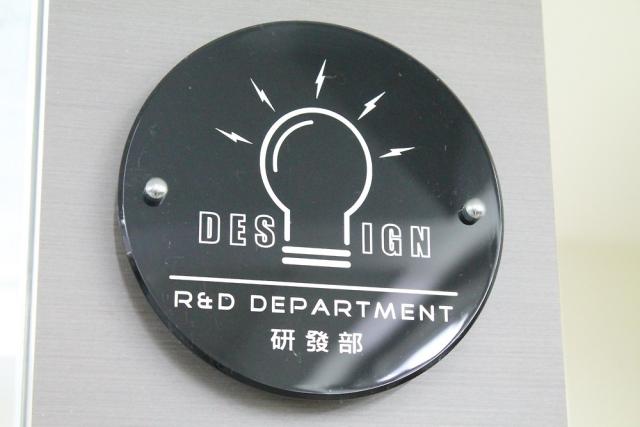
We had this idea for a V-brake that goes directly behind the fork. When everybody was worried about the 3:1 rule for the airfoil shapes [the UCI rule stating that the depth of the tube can’t be more than three times greater than the width], we thought we could extend the airfoil shape by making the brake part of that fork blade, so the TRP TTV brake goes directly behind the fork blade and creates the trailing edge of the airfoil shape. Giant are using that on their Propel aero road bike now, Argon 18 have been equally successful with it and so have Colnago, Wilier… more and more people.
Our lightweight magnesium brakes have been used on the highest level Cannondale Ultimates and Specialized Tarmac SLs.
Are disc brakes for road bikes really going to be the next big thing?
We feel like we’re the industry leaders in niche areas and if the biggest revolution coming in cycling is disc brakes for the road, we want to be at the forefront of that.
We know from motorsports that disc brakes are faster and we know that in Formula One, with those carbon fibre rotors, the drivers can leave their braking until later and reduce their lap times. Imagine if Nibali can dive into a corner and brake later on a descent, if he can get away by 30secs. If big brands are behind disc brakes for road, then the UCI can’t deny it.
I think it’s sensible not to just throw the gates open yet [disc brakes are not yet legal in UCI-sanctioned road racing], but every major bike manufacturer has a disc brake road bike coming
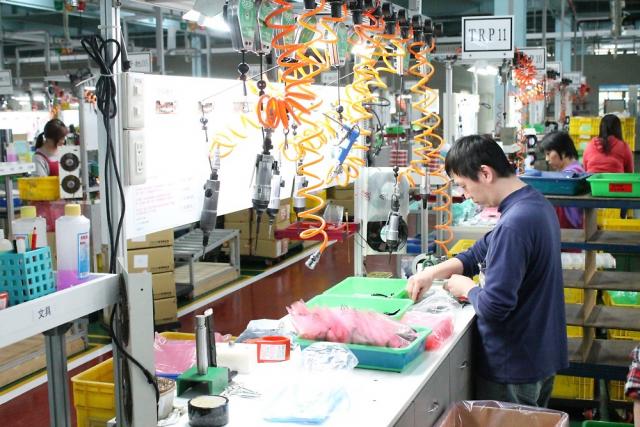
What about hydraulic rim brakes? Do you see them making much of an impact on the market?
Well, people who tested the SRAM version at Sea Otter said that it wasn’t great [we did a First Ride last month]. We’re looking at it – we have a design in the works – but at the same time we feel, why go halfway?
What do you think about cable systems versus hydraulic set-ups?
A hydraulic system has more power ultimately, and better modulation whereas a mechanical system is a bit lighter. The current TRP HyRd system [a mechanical interface hydraulic disc brake] is within 5g of the weight of an Avid BB7 [cable operated disc brake].
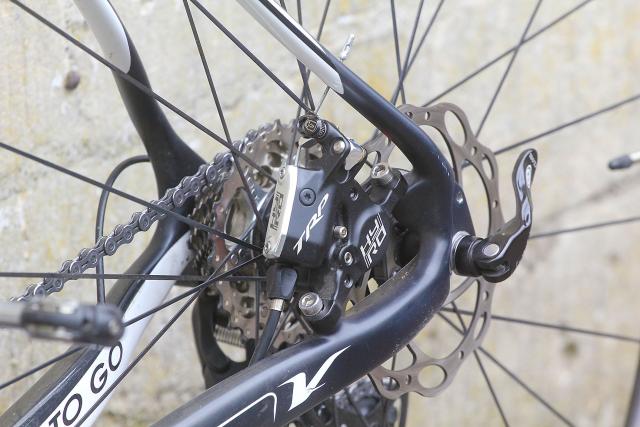
The Spyre, the two piston mechanical brake is 40g lighter than a BB7, it is 20mm narrower with 20% more power, so it’s for the person who wants light weight.
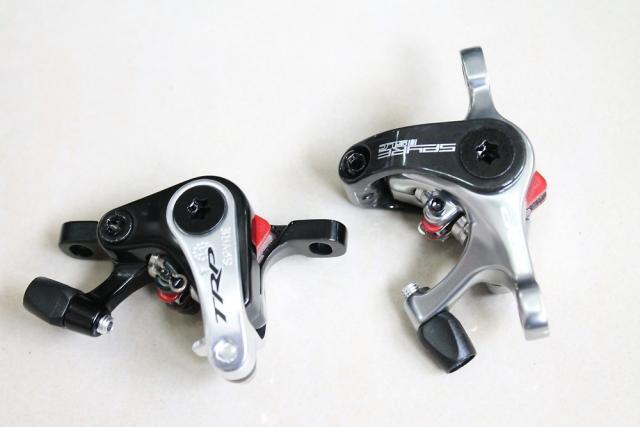
A standard Shimano Dura-Ace road caliper weighs about 135g and the Spyre is 140g, so you’re only really adding the weight of the rotor. We think that for simplicity and weight that might be really good, but I tend to prefer the power and modulation of hydraulic, and it feels really good in your hand. It feels like a well setup road caliper.
And whereas SRAM systems are super-expensive – they’ll be on $10,000 bikes – the HyRd can be positioned on an Ultegra-level bike at $1,500 and it’ll work with any current shift lever available.
What about rotor size?
Heat is not a big issue for us but we think you need a bigger rotor just for the extra leverage. We recommend a 160mm for the road. I think 140mm is fine for cyclocross.
Whenever we talk about disc brakes for road bikes, people on the road.cc forum always say that the limiting factor at the moment with existing caliper brakes isn’t the braking power, it’s getting the tyre to stop on the ground. What do you say to that?
I’d invite you to use the brake and make your own conclusion. It’s not a question of locking up the wheel all the time; what you want is power and control and that’s what you get here.

Normally, to pull up at a stop sign you’ll use about 3kg of lever force. It takes 6kg of lever force to clamp the brake tight so there’s a lot of room in there to feather the brake. It’s not like it’s on/off. There are armchair engineers who imagine what it’s like but they should use them and see.
Will discs eventually expand into every sector of cycling or are there areas where rim brakes will always remain dominant?
I don’t see why they shouldn’t go everywhere.
My first bike had a 5-speed freewheel and I made it into a 6-speed. People asked me what I wanted that for and thought it was stupid – but now we have 11-speed. I think it’ll be similar with disc brakes. Riding a disc brake bike on a descent gives you more control and is more fun than riding a caliper brake bike.

When it comes to developing disc brakes for the road, is it a question of developing existing mountain bike technology or starting with a clean sheet of paper?
It’s a little of both. We started with a basic mountain bike design but we’ve developed it for the road. The Hy/Rd’s composite pistons, weren’t used in mountain bike brakes, and we’ve had to think about the leverage ratios for road levers and things like that. Plus, a brake for the road has to look like a road product and not like a mountain bike product.
So, where do you see road bike braking heading next?
Well, we’re waiting for all this to shake out now. Then I think thru-axle designs [where the dropout is closed at the bottom as you’ll find on many mountain bikes] will come to the road. The danger with carbon dropouts is that you can remove a little material from the dropout with very heavy braking.

In road racing, you can’t file off the lawyer tabs [the tabs on the end of the fork dropouts that stop the wheel falling out even if you forget to tighten the quick release skewer] anymore, so to do a wheel change you have to unwind the skewer. It’s not that much more difficult to slide a thru-axle in and out to change a wheel.
For more info on TRP visit www.trpbrakes.com. The Tektro website is www.tektro.com. The UK distributor for both is www.upgradebikes.co.uk.
Mat has been in cycling media since 1996, on titles including BikeRadar, Total Bike, Total Mountain Bike, What Mountain Bike and Mountain Biking UK, and he has been editor of 220 Triathlon and Cycling Plus. Mat has been road.cc technical editor for over a decade, testing bikes, fettling the latest kit, and trying out the most up-to-the-minute clothing. He has won his category in Ironman UK 70.3 and finished on the podium in both marathons he has run. Mat is a Cambridge graduate who did a post-grad in magazine journalism, and he is a winner of the Cycling Media Award for Specialist Online Writer. Now over 50, he's riding road and gravel bikes most days for fun and fitness rather than training for competitions.
Latest Comments
- AidanR 52 min 36 sec ago
Rather than lending money directly from one company to another? Given that loaning the money to Brad to loan into another company would result in a...
- lesterama 54 min 14 sec ago
It'd probs be nicked the same day...
- HarrogateSpa 1 hour 17 min ago
It is a clear case of criminal damage.
- David9694 1 hour 34 min ago
Try https://www.thetelegraphandargus.co.uk/news/24739976.overturned-car-chat...
- chrisonabike 1 hour 58 min ago
Yes - or:...
- HoarseMann 2 hours 23 min ago
wot no radar? good job they're on a black friday special at the mo...
- Bungle_52 2 hours 34 min ago
Tweak no 1 then. The tag would need to beep at around 15mph getting more frequent as it approaches 20. It would come with an advisory note to...
- mark1a 3 hours 23 min ago
That will be along in a week or so in the annual reboot of the "All I want for Christmas is... not this" article along with the Park Tool pizza...
- quiff 3 hours 36 min ago
For that money, I'd go to Matthew Sowter - https://www.saffronframeworks.com/
- hawkinspeter 3 hours 43 min ago
The problem with most jeans (i.e. not cycling designed ones) is that they've got the seam where it can intefere/chafe with the saddle. Also, cotton...












































Add new comment
54 comments
I would really love a set. My bike is great but as a heavy rider coming down hills in the wet is quite an experience. I've replaced the cables and put Swiss Greens on but it still a struggle stopping. I'm sure better control would give me more confidence to go quicker downhill
As a long term user and fan of disc brakes (road and MTB) I believe that majority of road cyclists... don't need them.
Let's be realistic here. A typical rider doesn't live in the mountains, doesn't cycle in the rain (regularly) and doesn't cycle often enough for the rim wear to be a problem. There are lots of weekend warriors who can't handle their bikes well on descents and during group rides and disc brakes could make things worse for them and for the others.
Yes, disc brakes are technically superior but there's really not much wrong with modern rim brakes. They're cheaper (to buy and service), very effective (especially with good after market pads) and easy to adjust.
Oh.. and it's not "revolution". More of a slow evolution at best.
They've been plenty of people using discs on road/CX/commuter bikes for ages without waiting for official permission from the marketers and jurnos
They don't need them - but it might be an improvement in some ways...
It *could* I guess - but i'm really not sure it would. One of the benefits of hydraulic calipers, disc or rim, is the (typically) big increase in modulation.. I can only see that helping those with less handling skills or experience.
The price difference will decrease, but you're right - it is an issue and can't see that completely disappearing. As for effective... well yes they can be, especially when you start throwing money at them.. can't say i'm that taken with then and never have been even over a few decades - the response curves are often poor, the feed-back and feel worse and wet weather behaviour (not a minor consideration in the UK) often worrying even with after-market pads and the maintenance/adjustment a pain to keep them really sweet. I'd swap mine for reasonably priced and light hydraulics in a head-beat, but obviously it's a highly personal thing so I don't expect everyone to agree.
Absolutely agree - but i'm not sure that's entirely the issue... the big problem I see has been getting the manufacturers to offer something decent in the first place. Hopefully things are moving in that direction now !
Sorry? Do you actually live in the UK? I can count on my fingers the number of dry rides I've had this year!
I actually think this may be faster than getting a qr beyond lawyer tabs, especially using something akin to the RockShox Maxle lite 360; I'm pretty sure i can take the front wheel off a mtb faster than i can a road bike with lawyer tabs in place.
Yes I live in the UK (South) and I commute every single week day.
I can count on my fingers the number of cyclists riding in the rain.
Soft Southern Shandies.
That is all.
It may not be the unit of pressure but is far easier to comprehend than psi or bar.
"This press, for example, applies 400 tonnes of pressure". The tonne is NOT the unit of pressure, when are these lazy/ignorant journalists going to learn?
Think they may be refering to a forge press .... as they
say in goes metal out comes brake parts !!
Me personally .... love the discs on the mtb, so when the
road bike gets replaced and discs are the only option so
be it
I'm testing those Hy/Rd discs pictured at the top at the moment. the big win isn't the (mainly theoretical) increase in absolute power. it's the amount of force needed to do normal braking, on a normal ride. it's *so* easy.
setting them up is easy, and adjsuting them is easy too because you don't really have to.
can you cook them on a descent? you can make them fade, a bit, by dragging them on a long descent. but you can't boil them, the master cylinder is barely warm even when you could fry an egg on the rotors.
are they better than dual pivots? yes.
disc brakes will happen, the same way 29ers 27.5ers are now happening, performance is only part of the reason. Money is the other.
To be honest i am not sure which is actually driving this!
Do i want disc brakes, to be honest i am not fussed, will my next bike have disc brakes? almost certainly as that will be the only option.
I use disc brakes on the mtb, and they work, are they better than the Maguras i used before? or the v brakes, or the lo pro canti's or the XT2's i started with? no not really, they are different, they have pluses and they have minuses. The real plus is mud clearance, which isn't really an issue on the average road bike.
That'll be the end of radial spokes then
Ultimately I suspect it will have nothing to do with stopping power. Disc brakes are bound to proliferate because they'll enable Shimano to sell a whole new generation of groupsets, Specialized to sell a whole new generation of frames and Mavic to sell a whole new generation of wheelsets. The combined marketing might of the cycle sector will overcome such petty considerations as whether discs work any better (which personally I think they do anyway).
^^^
This is the only real reason. Aren't you (royal 'you') already starting to feel anxious that your road bike set-up won't mirror that of the pros?
@Al'76 YES!!!! My brakes and rims wear so quickly! Esp as I live in a hilly area! Personally sounds all good to me, I'm guessing that hydraulic brake surface and pads will be a helluva lot cheaper than new rims! Thru axel wouldn't bother me either and seeing that I'm in no need of super quick wheel changes I wouldn't be bothered.
I'm not going to be jumping at Di2 unless someone gives it me, but I think the hydraulics would be something I'd want.
As for the peloton having or not having it would it be riders personal choice? Ie like electronic shifting and some riders opting out (and pissing sponsers off I imagine).
I just like the idea of riding through the winter without killing a set of rims...
Ride a fixed gear?
Am I the only person who thinks that TRP just isn't special enough? It doesn't matter how good they are or aren't.
Eh ?
Can you imagine how painful if in the peleton a big crash at speed with nice big disc brakes the lacerations you may get, that would'nt be to pretty.
Ever seen the lovely mess a chainring makes when it meets flesh - should we ban those too?
Bloody hell someone's not getting any.
Agreed..does sound like a faff...
Biggest problem is as the UCI say you cant have a peleton some with disks and some without...it has to be all or nothing..someone in the middle of a bunch with way more powerful brakes is going to cause a crash...how on earth do they get round that little one??
I take my time with tech and just wait and see...do like watching the developments though..like the electronic shifting I will give it another couple of years before I commit to it...its close...and discs will follow.
I wonder if the people who talk about lack of grip with disc brakes on road bikes have ever tried them? I find and I'm pretty sure others do too that with a disc brake you just apply far less pressure at the lever to achieve a stop. IMHO I reckon if you just jam your brakes on even "big" mtb tyres will skid. There is an amount of recalibration but for me being able to stop (well) in the wet and having to use far less hand effort at all times means I can't wait to afford a disc braked road bike.
BTW one of the things I love about the BB7s on my mtb is that I can adjust the feel/bite point to exactly how I like. I didn't find that with the few hydro systems I used in the past. More recent units may be different.
Interesting thought about thru-axles. It looks like quite a faff - perhaps someone might invent a new road QR/thru-axle type system that is more disc brake friendly?
Pages